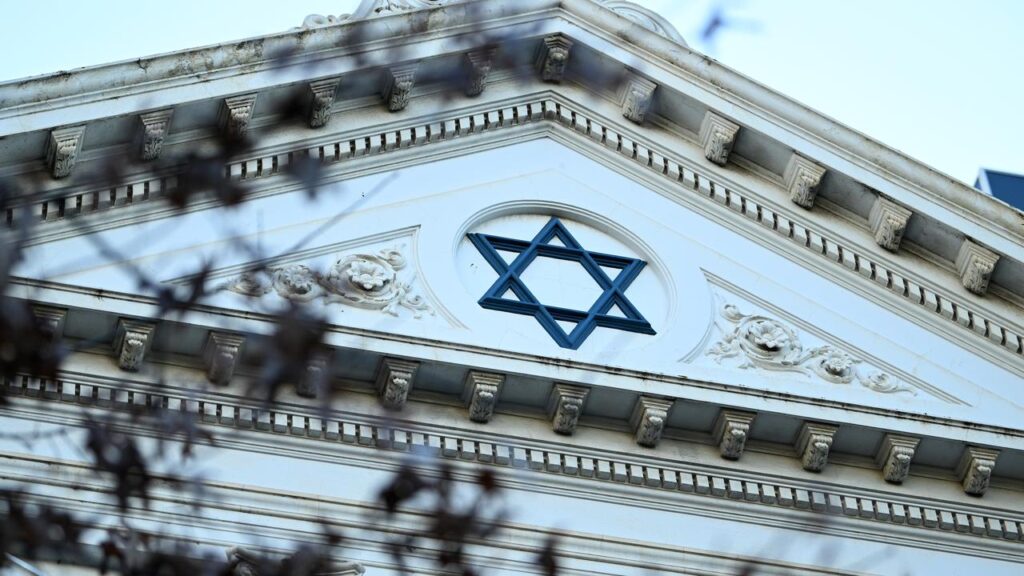Plan to rid anti-Jew ‘cancer’ targets uni, arts funding
Kat Wong |

Australia’s universities and cultural institutions are at risk of losing their funding while immigrants face deportation under a wide-ranging plan to address anti-Semitism.
Following a surge in threats and violence against Jewish Australians, the federal government has welcomed anti-Semitism envoy Jillian Segal’s sweeping report, which put public funding at the front and centre of its recommendations.
It found Jewish students were subject to discrimination, particularly at higher education campuses, and has urged the federal government to withhold money from universities, programs or academics that facilitate, enable or fail to act against anti-Semitism.
Public grants could also be terminated if recipients engaged in “anti-Semitic or otherwise discriminatory or hateful speech or actions”, the report said.
“The plan supports the safety, visibility and contribution of Australia’s Jewish communities, so that no Australian feels the need to hide who they are,” Ms Segal told reporters in Sydney as she delivered her findings.
Mr Albanese said Labor would work constructively with Ms Segal and review the recommendations, although he did not commit to implementing the measures.
About 60 per cent of Australian Jewish students who experienced anti-Semitism in 2024 felt unsupported by their institutions, according to a survey by the Australian Union of Jewish Students.

This push to ensure public funding “is not used to support or implicitly endorse anti-Semitic themes or narratives” could also put cultural institutions and broadcasters at risk.
The report suggests all public funding agreements with festivals or cultural institutions include terms to allow for the termination of funding when they promote, facilitate or fail to effectively deal with hate or anti-Semitism.
Anyone hoping to get an Australian visa should also be subject to screening for anti-Semitic views or affiliations and those found to have been involved would face visa cancellation and deportation under the recommendations.
There are some concerns the plan could stifle legitimate criticism of Israel, whose violence in Gaza – following the October 7 attack on Israelis by Hamas – has killed more than 57,000 Palestinians.
A slew of Australian arts bodies, including the Melbourne Symphony Orchestra, the State Library of Australia and Creative Australia, had already revoked opportunities from artists who had been outspoken critics of Israel.
The report also recommended higher education institutions and all levels of government adopt the International Holocaust Remembrance Alliance’s controversial definition of anti-Semitism, which has been decried for conflating criticism of Israel and Zionism with anti-Semitism.
When asked about the concerns, Prime Minister Anthony Albanese said people had a right to their perspectives but did not have a right to bring conflict to Australia.
“Whatever your view on the Middle East, it is not advanced by attacking people here in Australia because of who they are, because of their faith, because of their identity – it’s completely unacceptable,” he told reporters in Sydney.
The progressive Jewish Council of Australia raised concerns the report’s “dangerously unclear” recommendations risked censoring criticism of Israel, deepening racism and failing to to address the root causes of anti-Semitism.
“This document reads more like a blueprint for silencing dissent rather than a strategy to build inclusion,” executive officer Max Kaiser said.

Other groups including the Zionist Federation of Australia and the Executive Council of Australian Jewry backed its findings and called for their urgent implementation.
“This is a very well-considered plan,” the council’s president Daniel Aghion said.
Ms Segal’s report has been in the works since her July 2024 appointment but the issue of anti-Semitism returned to the fore after an East Melbourne synagogue was set alight on Friday night.
There has been a 300 per cent rise in threats, vandalism and physical violence against Jewish Australians between October 2023 and September 2024.
Federal Opposition Leader Sussan Ley urged Mr Albanese to act on Ms Segal’s recommendations and called anti-Semitism a “cultural and societal cancer”.
AAP